-
 Bitcoin
Bitcoin $83,418.1551
-0.31% -
 Ethereum
Ethereum $1,808.8979
-0.41% -
 Tether USDt
Tether USDt $0.9999
0.02% -
 XRP
XRP $2.1463
1.00% -
 BNB
BNB $593.3907
-0.49% -
 Solana
Solana $120.0979
-1.63% -
 USDC
USDC $1.0001
0.00% -
 Dogecoin
Dogecoin $0.1689
-0.83% -
 Cardano
Cardano $0.6536
-1.17% -
 TRON
TRON $0.2370
-0.75% -
 Chainlink
Chainlink $12.8454
-0.75% -
 UNUS SED LEO
UNUS SED LEO $9.1245
-0.51% -
 Toncoin
Toncoin $3.2503
-4.22% -
 Stellar
Stellar $0.2527
-2.58% -
 Avalanche
Avalanche $17.8357
-1.69% -
 Shiba Inu
Shiba Inu $0.0...01231
-0.09% -
 Sui
Sui $2.2068
-1.49% -
 Hedera
Hedera $0.1623
-0.93% -
 Litecoin
Litecoin $82.5360
-2.34% -
 Polkadot
Polkadot $3.9567
-1.88% -
 Bitcoin Cash
Bitcoin Cash $306.9330
1.70% -
 MANTRA
MANTRA $6.2879
0.30% -
 Dai
Dai $1.0001
0.01% -
 Bitget Token
Bitget Token $4.4588
-1.48% -
 Ethena USDe
Ethena USDe $0.9992
0.01% -
 Pi
Pi $0.6376
24.33% -
 Hyperliquid
Hyperliquid $11.9460
0.08% -
 Monero
Monero $213.4997
-0.58% -
 Uniswap
Uniswap $5.8533
-0.79% -
 OKB
OKB $52.7441
6.99%
How does NFT Monetization provide creators with new sources of income?
NFTs empower creators with recurring revenue via royalties on resales, fractionalization, licensing, and metaverse opportunities, offering greater control and financial independence than traditional methods.
Mar 05, 2025 at 02:49 am
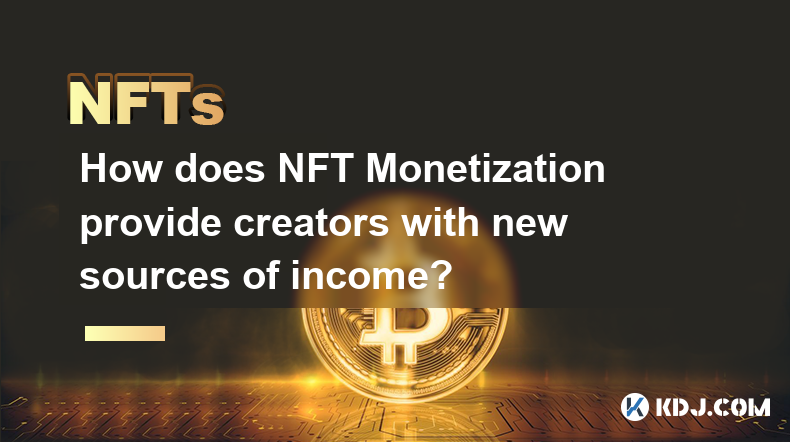
Key Points:
- NFTs offer creators recurring revenue streams beyond initial sales.
- Monetization strategies extend beyond simple NFT sales, including royalties, fractionalization, and licensing.
- The decentralized nature of NFTs empowers creators with greater control over their work and earnings.
- Smart contracts automate royalty payments, ensuring fair compensation for creators.
- The metaverse and other emerging technologies offer new avenues for NFT monetization.
How Does NFT Monetization Provide Creators with New Sources of Income?
The advent of Non-Fungible Tokens (NFTs) has revolutionized how creators can monetize their digital assets. Unlike traditional digital content, NFTs offer unique ownership verification, allowing creators to generate income streams beyond the initial sale. This opens up a wealth of opportunities for artists, musicians, writers, and other content creators to directly engage with their audiences and receive ongoing compensation for their work.
One of the most significant ways NFTs generate new income is through built-in royalty mechanisms. Smart contracts, the code underpinning NFTs, can be programmed to automatically pay creators a percentage of every subsequent resale of their NFT. This differs dramatically from traditional methods where creators receive only an initial payment. This recurring revenue stream provides a level of financial stability previously unavailable.
Beyond royalties, creators can explore various other monetization strategies. Fractionalization, for example, allows creators to divide their NFTs into smaller, more affordable units, making them accessible to a broader audience. This increases the potential for sales and generates additional income from a single piece of work. It also allows for greater liquidity for the creators and collectors alike.
Licensing agreements represent another lucrative avenue. Creators can grant limited-use licenses for their NFTs, allowing others to utilize their work in various contexts – such as video games, merchandise, or virtual worlds – in exchange for a fee. This opens up opportunities for collaboration and broader reach, generating diverse income streams.
The decentralized nature of NFTs also empowers creators with greater control over their work and earnings. Unlike traditional platforms where intermediaries often take significant cuts, NFT marketplaces generally charge lower fees, allowing creators to retain a larger portion of their profits. This autonomy is a significant advantage for creators seeking greater financial independence.
The metaverse and other emerging technologies further expand the possibilities for NFT monetization. Creators can leverage their NFTs to create immersive experiences, virtual goods, or interactive content within these virtual worlds, generating income through in-world transactions, subscriptions, or virtual events. The potential for innovation and revenue generation in these spaces is vast.
Furthermore, the ability to build communities around NFTs is a powerful monetization tool. Creators can foster engagement with their fans through exclusive content, access to early releases, or opportunities to collaborate directly. This fosters loyalty and creates a dedicated audience willing to support their work financially. This sense of community can lead to ongoing support through subscriptions or other membership-based models.
The use of NFTs in gaming also presents exciting opportunities. In-game items, unique characters, or virtual land can be tokenized as NFTs, allowing creators to generate ongoing revenue through sales, rentals, or even participation in in-game economies. This opens up new avenues for income beyond traditional game development models.
NFT platforms are constantly evolving, introducing new features and functionalities to facilitate monetization. Some platforms offer built-in tools for managing royalties, facilitating sales, and engaging with audiences, streamlining the process for creators. Others focus on specific niches, providing specialized support for artists, musicians, or other types of creators.
The increasing adoption of NFTs by mainstream businesses and brands also presents significant opportunities for creators. Collaborations with established brands can expose their work to a wider audience, generating significant income through licensing agreements, co-branded NFTs, or other partnerships. This offers a pathway to broader commercial success.
Frequently Asked Questions:
Q: What are the risks associated with NFT monetization?
A: The NFT market is volatile, and the value of NFTs can fluctuate significantly. There are also risks associated with platform security, smart contract vulnerabilities, and legal complexities surrounding intellectual property rights.
Q: How can creators protect their intellectual property when using NFTs?
A: Creators should carefully review the terms of service of the NFT marketplace they use and ensure they retain ownership of their intellectual property rights. They should also consider consulting with legal professionals to understand the legal implications of using NFTs.
Q: What are the best NFT marketplaces for creators?
A: There are many NFT marketplaces available, each with its own strengths and weaknesses. Some popular choices include OpenSea, Rarible, and Foundation, but the best platform for a creator depends on their specific needs and the type of content they create. Research is key to finding the best fit.
Q: How can creators effectively market and promote their NFTs?
A: Effective marketing is crucial for NFT success. Strategies include social media marketing, community building, collaborations with influencers, and participation in NFT events and contests. Understanding your target audience is paramount.
Q: Are there any tax implications associated with NFT sales and royalties?
A: Yes, the sale of NFTs and the receipt of royalties are generally considered taxable events. Creators should consult with tax professionals to understand their tax obligations and ensure compliance with relevant laws.
Disclaimer:info@kdj.com
The information provided is not trading advice. kdj.com does not assume any responsibility for any investments made based on the information provided in this article. Cryptocurrencies are highly volatile and it is highly recommended that you invest with caution after thorough research!
If you believe that the content used on this website infringes your copyright, please contact us immediately (info@kdj.com) and we will delete it promptly.
- Is Ethereum (ETH) Dead as an Investment?
- 2025-04-06 08:40:12
- Bitunix exchange launches the Ultra version of K-line (candlesticks) on its mobile app integrated with TradingView
- 2025-04-06 08:40:12
- As XRP Has Become the Focus of the Market Due to Ripple's Legal Victory and ETF Expectations
- 2025-04-06 08:35:12
- Trump-Themed Coins Dominate the List of Top-Performing Cryptos Today
- 2025-04-06 08:35:12
- Meme Coins Could Be Solana (SOL)'s Secret Weapon to $1,000
- 2025-04-06 08:30:12
- Did BlackRock's CEO Just Describe XRP Without Saying Its Name? Plus, One Ripple Alternative You Haven't Heard Of
- 2025-04-06 08:30:12
Related knowledge
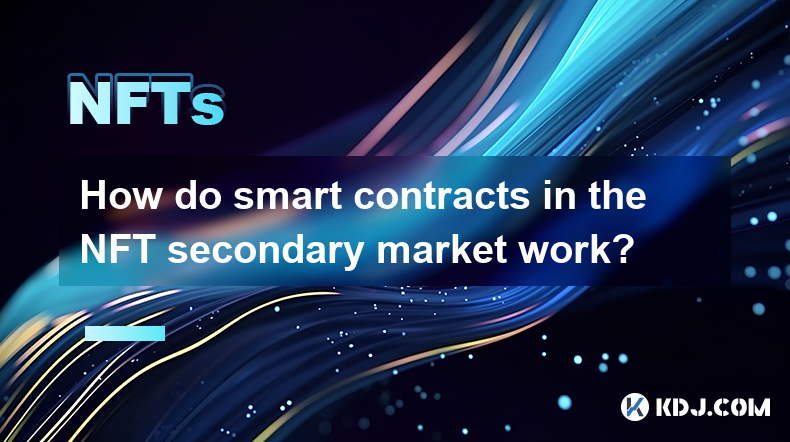
How do smart contracts in the NFT secondary market work?
Apr 03,2025 at 07:14am
Smart contracts play a pivotal role in the NFT secondary market, facilitating seamless transactions and enforcing predefined rules. These self-executing contracts with the terms of the agreement directly written into code are stored on the blockchain. In the context of NFTs, smart contracts automate the buying, selling, and transferring of digital asset...
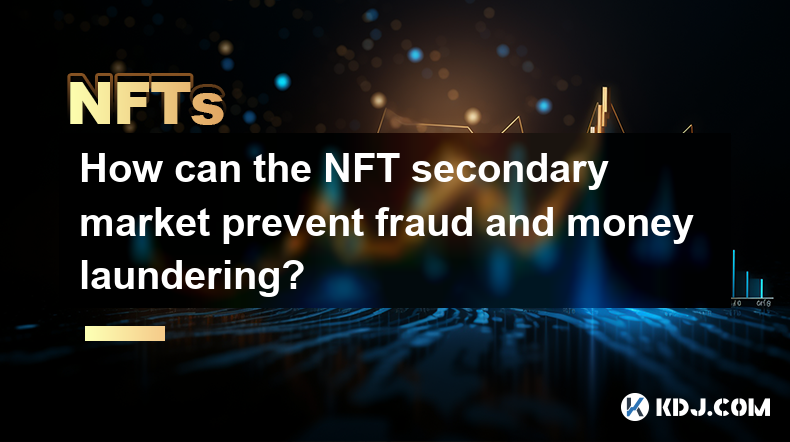
How can the NFT secondary market prevent fraud and money laundering?
Apr 03,2025 at 08:35am
The NFT secondary market has become a thriving hub for digital art and collectibles, but it also faces challenges in preventing fraud and money laundering. To tackle these issues, the market can implement various strategies and technologies to ensure a safer and more transparent trading environment. This article will explore how the NFT secondary market...
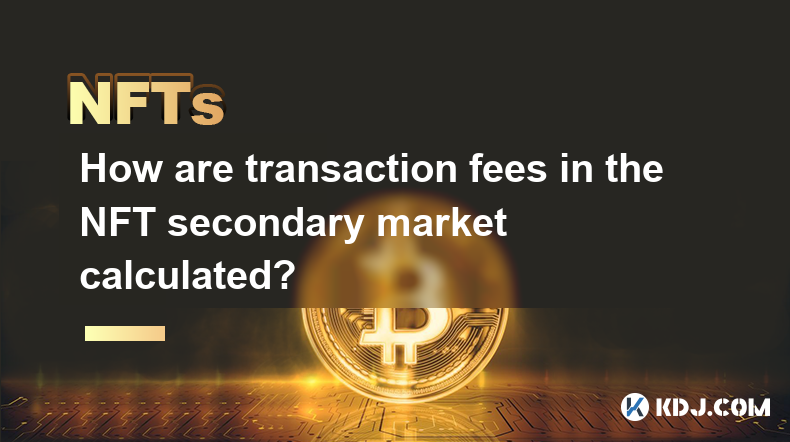
How are transaction fees in the NFT secondary market calculated?
Apr 04,2025 at 05:28am
The calculation of transaction fees in the NFT secondary market is a crucial aspect that both buyers and sellers need to understand. These fees can significantly impact the overall cost of transactions and the profits that sellers can make. In this article, we will delve into the various components that make up these fees, how they are calculated, and w...
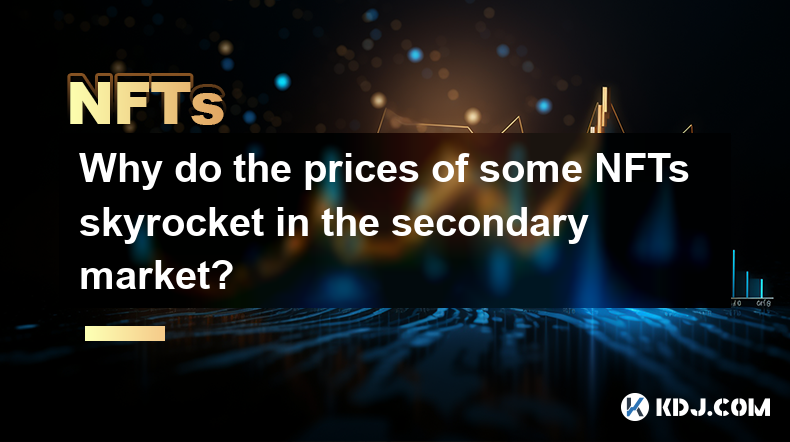
Why do the prices of some NFTs skyrocket in the secondary market?
Apr 06,2025 at 07:08am
The phenomenon of NFT prices skyrocketing in the secondary market is a fascinating aspect of the cryptocurrency and digital art world. Non-Fungible Tokens (NFTs) have taken the digital world by storm, and their value can surge dramatically after initial sales. Several factors contribute to this price surge, including rarity, demand, speculation, and the...
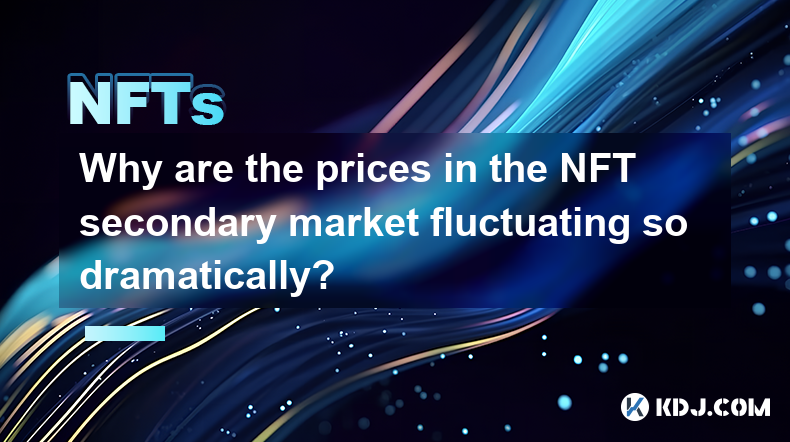
Why are the prices in the NFT secondary market fluctuating so dramatically?
Apr 03,2025 at 10:35pm
The NFT secondary market has been experiencing dramatic price fluctuations, leaving many in the cryptocurrency community puzzled and curious. To understand this phenomenon, it's essential to delve into the factors driving these price movements. From the impact of market sentiment and celebrity endorsements to the role of speculation and the unique natur...
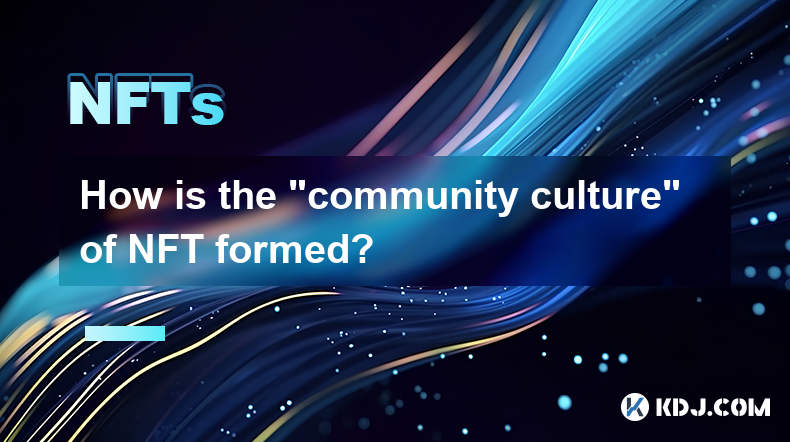
How is the “community culture” of NFT formed?
Apr 03,2025 at 11:07am
The formation of the 'community culture' within the NFT (Non-Fungible Token) space is a fascinating and multi-faceted process. It involves various elements such as shared interests, active engagement, and the creation of a sense of belonging among members. NFT communities often revolve around specific projects or artists, fostering a unique environment ...

How do smart contracts in the NFT secondary market work?
Apr 03,2025 at 07:14am
Smart contracts play a pivotal role in the NFT secondary market, facilitating seamless transactions and enforcing predefined rules. These self-executing contracts with the terms of the agreement directly written into code are stored on the blockchain. In the context of NFTs, smart contracts automate the buying, selling, and transferring of digital asset...

How can the NFT secondary market prevent fraud and money laundering?
Apr 03,2025 at 08:35am
The NFT secondary market has become a thriving hub for digital art and collectibles, but it also faces challenges in preventing fraud and money laundering. To tackle these issues, the market can implement various strategies and technologies to ensure a safer and more transparent trading environment. This article will explore how the NFT secondary market...

How are transaction fees in the NFT secondary market calculated?
Apr 04,2025 at 05:28am
The calculation of transaction fees in the NFT secondary market is a crucial aspect that both buyers and sellers need to understand. These fees can significantly impact the overall cost of transactions and the profits that sellers can make. In this article, we will delve into the various components that make up these fees, how they are calculated, and w...

Why do the prices of some NFTs skyrocket in the secondary market?
Apr 06,2025 at 07:08am
The phenomenon of NFT prices skyrocketing in the secondary market is a fascinating aspect of the cryptocurrency and digital art world. Non-Fungible Tokens (NFTs) have taken the digital world by storm, and their value can surge dramatically after initial sales. Several factors contribute to this price surge, including rarity, demand, speculation, and the...

Why are the prices in the NFT secondary market fluctuating so dramatically?
Apr 03,2025 at 10:35pm
The NFT secondary market has been experiencing dramatic price fluctuations, leaving many in the cryptocurrency community puzzled and curious. To understand this phenomenon, it's essential to delve into the factors driving these price movements. From the impact of market sentiment and celebrity endorsements to the role of speculation and the unique natur...

How is the “community culture” of NFT formed?
Apr 03,2025 at 11:07am
The formation of the 'community culture' within the NFT (Non-Fungible Token) space is a fascinating and multi-faceted process. It involves various elements such as shared interests, active engagement, and the creation of a sense of belonging among members. NFT communities often revolve around specific projects or artists, fostering a unique environment ...
See all articles





















































































